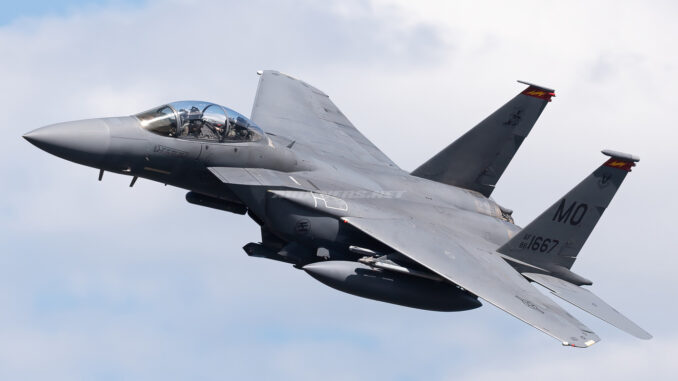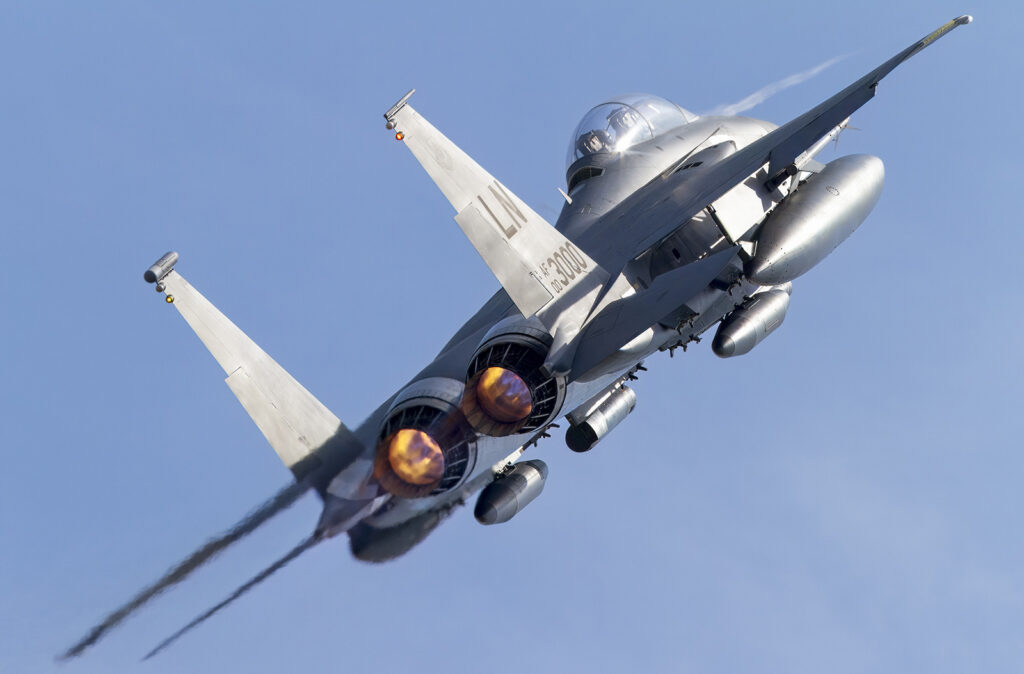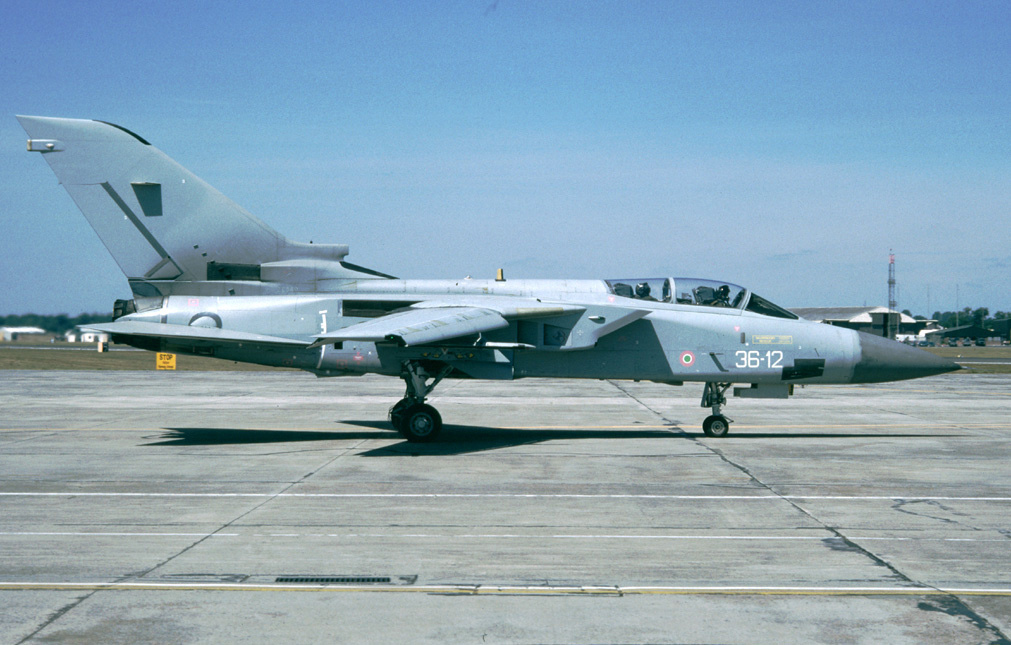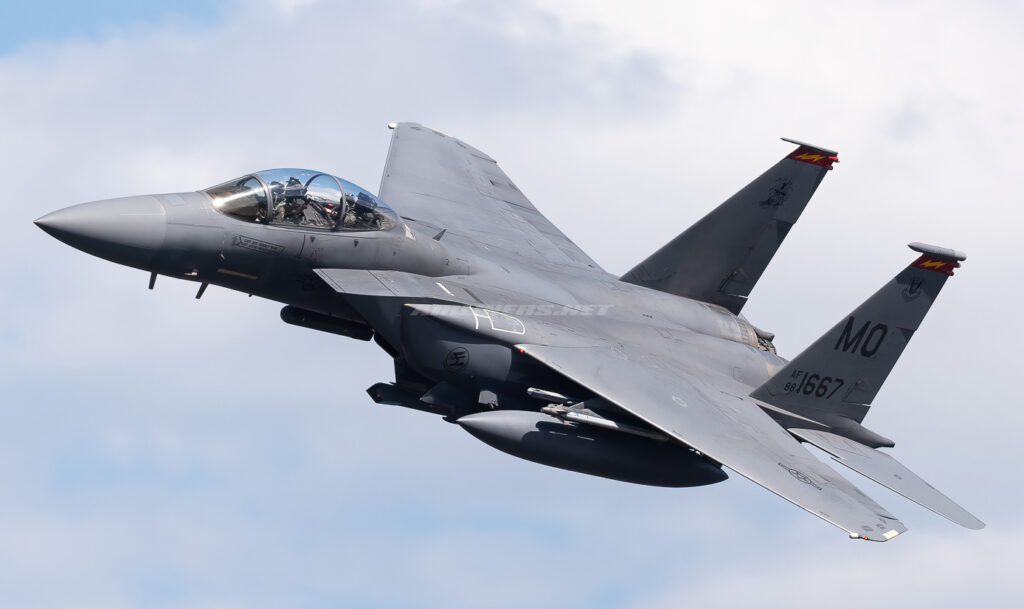
Technical comparison of the F-15E Strike Eagle and Panavia Tornado ADV fighter jets, analyzing performance, avionics, armament, and cost.
The Boeing F-15E Strike Eagle and the Panavia Tornado ADV are two military aircraft designed for different, yet complementary roles. The F-15E, derived from the iconic F-15, is an all-weather strike fighter designed for long-range missions without requiring external support. On the other hand, the Tornado ADV (Air Defense Variant) was specifically developed as an interceptor to defend airspace against high-altitude threats. This analysis compares their technical characteristics to determine which aircraft offers superior overall capabilities in their respective roles.

Boeing F-15E Strike Eagle
The F-15E Strike Eagle is a twin-engine multirole fighter jet primarily designed for long-range interdiction missions. It does not require escort or electronic warfare support. Powered by two Pratt & Whitney F100-PW-229 engines, each providing 29,000 pounds-force of thrust with afterburner, the F-15E can reach a maximum speed of Mach 2.5 (2,655 km/h or 1,650 mph) and has a combat radius of 1,270 km (790 miles). Its impressive payload capacity allows it to carry up to 11 tons of various munitions, including air-to-air and air-to-ground missiles, and guided bombs.
The F-15E is equipped with advanced avionics, including the AN/APG-70 radar, capable of detecting targets at long ranges. It also features sophisticated electronic warfare systems for defense against threats. The cockpit is ergonomically designed and equipped with advanced information management systems, enabling the pilot and weapons systems officer to execute complex missions with precision.
Panavia Tornado ADV
The Panavia Tornado ADV is a variant of the Tornado specifically designed for long-range air defense missions. Powered by two Turbo-Union RB.199 Mk 104 engines, the Tornado ADV can achieve a top speed of Mach 2.2 (2,415 km/h or 1,500 mph) and operate at a maximum altitude of 15,240 meters (50,000 feet). Its variable-sweep wing design allows the aircraft to adjust wing angles to optimize performance depending on the mission profile, particularly during high-speed interceptions.
The Tornado ADV’s armament is focused on air-to-air missiles, with a capacity to carry up to eight missiles, including the AIM-120 AMRAAM and AIM-132 ASRAAM. The Foxhunter radar, while occasionally criticized, has been upgraded to improve multi-target engagement capabilities. The aircraft’s maneuverability is enhanced by an automatic maneuver device system, which automatically adjusts the wing sweep to maintain optimal flight characteristics.

Comparison Table
| Criteria | F-15E Strike Eagle | Panavia Tornado ADV | Advantage |
|---|---|---|---|
| Maximum Speed | Mach 2.5 (2,655 km/h / 1,650 mph) | Mach 2.2 (2,415 km/h / 1,500 mph) | F-15E |
| Cruise Speed | Mach 0.9 (1,067 km/h / 663 mph) | Mach 0.87 (1,065 km/h / 662 mph) | F-15E |
| Rate of Climb | 254 m/s (50,000 ft/min) | 76 m/s (15,000 ft/min) | F-15E |
| Service Ceiling | 18,000 m (59,000 ft) | 15,240 m (50,000 ft) | F-15E |
| Combat Radius | 1,270 km (790 miles) | 869 km (540 miles) | F-15E |
| Range | 3,900 km (2,400 miles) | 1,390 km (865 miles) | F-15E |
| Endurance | 4.5 hours | 3 hours | F-15E |
| Engine Power | 2 x 29,000 lbf (129 kN) | 2 x 16,410 lbf (73 kN) | F-15E |
| Maneuverability | Excellent | Good | F-15E |
| Radar | AN/APG-70, extended range | Foxhunter, multi-target | F-15E |
| Weapon Load | 11,000 kg (24,250 lbs) | 9,000 kg (19,800 lbs) | F-15E |
| Stealth | Moderate | Low | F-15E |
| Ease of Maintenance | Moderate | Good | Tornado |
| Versatility | Multirole (air-to-air, air-to-ground) | Specialized (air-to-air) | F-15E |
| Unit Cost | 87 million USD | 43 million USD | Tornado |
| Operating Cost | High | Moderate | Tornado |
| Upgradability | Very high | Moderate | F-15E |
The F-15E Strike Eagle stands out as the superior aircraft in this comparison, excelling in almost all key categories. Its versatility, firepower, and advanced avionics make it a top-tier fighter capable of executing complex missions with high efficiency. The Panavia Tornado ADV, while effective as an interceptor, is more limited in terms of versatility and overall performance. However, it remains a robust platform with lower operating costs, which could be a deciding factor in specific strategic contexts.

War Wings Daily is an independant magazine.